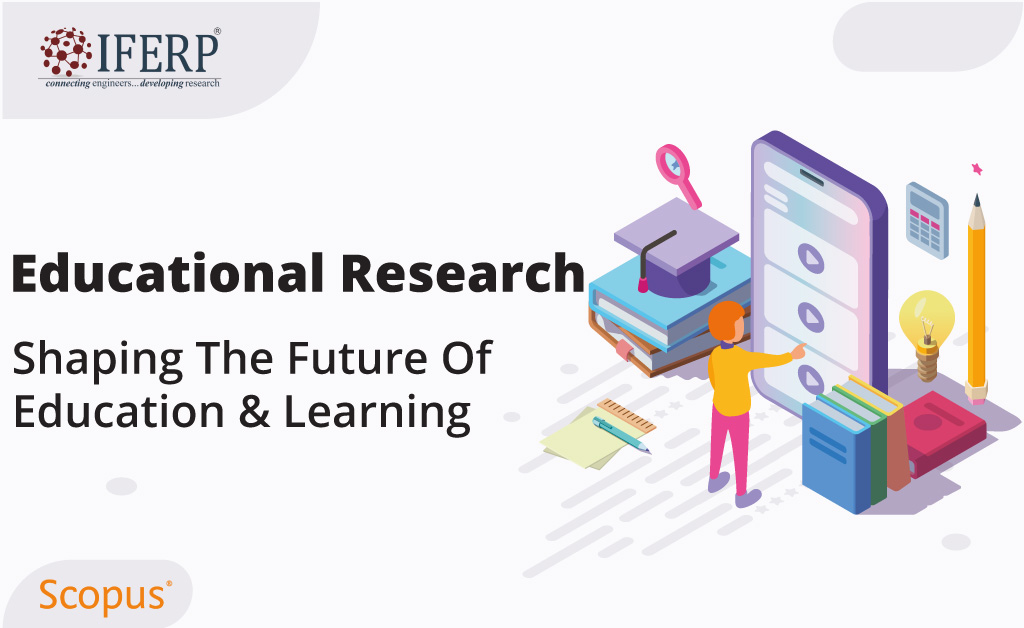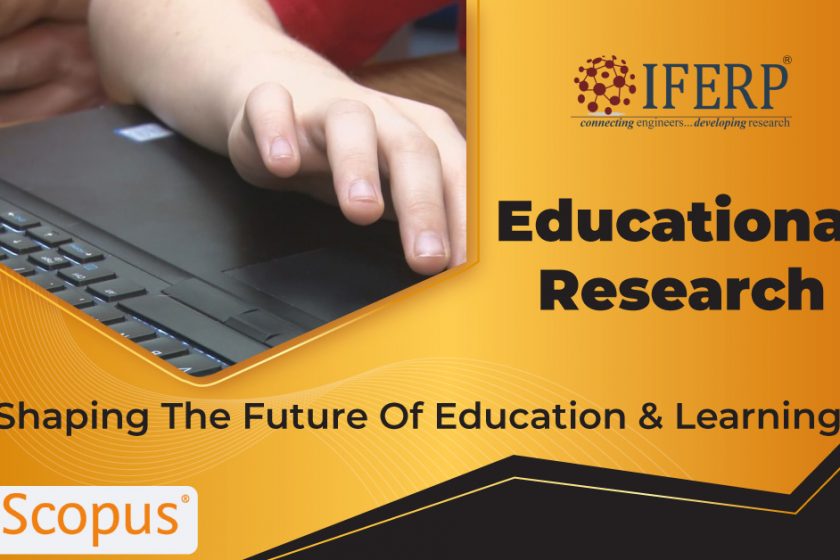The Crux Of Educational Research
The systematic examination that applies empirical methods to solve challenges in the field of education is deemed as educational research. It adopts rigorous and well-defined scientific processes to collect and analyze data for problem-solving and the advancement of knowledge. Educational research has also been defined as the activity-oriented towards the development of a science of behavior in educational situations. The ultimate goal of such science is to provide knowledge that will enable an educator to accomplish his/her objectives by employing the most efficient techniques.
The primary goal of educational research is to expand the existing body of knowledge by providing solutions to various educational problems while improving teaching and learning practices. Educational researchers also seek answers to questions regarding the motivation, development, and management of the learner’s classroom.
The upcoming Thailand conference 2023, is a must-attend event for all those in the field of educational and multidisciplinary research.
Types Of Educational Research
Educational research can be classified into three broad categories namely, descriptive research, correlational research, and experimental research. Each of these elements has distinct and overlapping characteristics.
- Descriptive Educational Research
In this category, the researcher is simply looking to collect data on the status quo or the current state of affairs. The heart of descriptive research lies in defining the state and characteristics of the under-studied research subject. Owing to its emphasis on the origins of the situation, descriptive research can be referred to as an observational research method. In descriptive educational research, the researcher uses quantitative research methods including surveys and questionnaires to collect the data required. Traditionally, descriptive research is the initial step in resolving a distinct predicament. The following are a few examples of descriptive research –
- reading programs help in gaining an understanding of student literacy levels.
- studies on the performance of students in the classroom.
- Research projects to collect data on student interests and preferences.
From these examples, it is noticeable that the researcher does not need to create a simulation of the natural environment of the research subjects; rather, he or she watches them as they go through their routines. In addition, the researcher is not concerned with creating a causal relationship between the variables of the research.
If you have carried out some distinct and innovative research work in this field and would like to spread the word about your findings through journal publication 2023 opportunities, then register and participate in IFERP’s upcoming event, in Thailand.

- Correlational Research
This is a type of educational research that seeks to better comprehend the analytical connection between two variables under examination. In correlational research, researchers analyze two variables with the purpose of building a link between them. Correlational research can be positive, negative, or nonexistent. A positive association transpires when an increment in the first variable results in an increase in the second variable, while a negative correlation occurs when an increase in the first variable results in a decrease in the second one.
When a change in one of the variables does not trigger a subsequent change in the other, the correlation is non-existent. Furthermore, in correlational educational research, the research does not need to modify the natural environment of the variables; that is, there is no need for external conditioning. Listed below are a few examples of correlational research in education –
- research projects to discover the relationship between student behaviors and classroom performance.
- studies on the relationship between students’ social skills and their learning behaviors.
Have you carried out some great correlational educational research? Then you should have findings published in a renowned SCOPUS journal of your choosing. Register for the forthcoming in Thailand 2023 to participate and gain access to these opportunities.
- Experimental Research
Experimental research in education is a research approach that seeks to establish the causal relationship between two variables in the research environment. It adopts quantitative research methods to determine cause and effect based on research variables studied. Educational experimental research typically involves two groups – the control group and the experimental group. The researcher introduces certain changes in the experimental group like a change of environment or a catalyst, while the control group is left in its natural state.
The introduction of these catalysts allows the researcher to determine the causal factor or factors of the experiment. At the heart of experimental educational research is the formulation of a hypothesis and, therefore, the overall research design relies on statistical analysis to endorse or disprove that hypothesis. Mentioned below are instances of experimental educational research –
- studies to determine the best teaching and learning methods in a school.
- studies to understand how extracurricular activities affect the learning process.
On the basis of functionality, educational research can be classified into basic research, applied research, and action research. The primary objective of basic experimental research is to provide information on the variables of research; that is, to acquire more knowledge. Basic research does not solve any specific problem. Applied research, as it suggests, is a research approach that seeks to solve specific problems. The results of applied research are useful in solving practical problems in the education sector such as improving teaching methods, modifying learning programs, and simplifying pedagogy. Meanwhile, action research is designed to solve immediate problems that are context-specific such as educational challenges in a local primary school. The aim of action research is to come up with solutions that work in this context and to resolve general or universal challenges in the education sector.
The highly anticipated 2023 upcoming conference – 2nd International Conference on Multidisciplinary and Current Educational Research (ICMCER – 2021) which will take place in Ayuttaya, Thailand from the 23rd to the 24th, January 2021, will offer a clear perspective of all the above-detailed techniques of educational research. The esteemed speakers who are expected to lecture at this event will delve into detail about the benefits and drawbacks of each of these methods so that those eager to pursue educational research will have a clear idea of what getting into this field entails.
Breakthroughs In Educational Research
The greatest advances in educational research technology have long disrupted and changed the educational space. Technological advancements that change the way we learn to do so through a variety of methods. They can improve our understanding of the learning process, facilitate our access to content, increase learner retention by enhancing the educational experience, or address systemic inequalities by making learning affordable. Detailed below are some of the biggest advancements in the field of education that are a direct consequence of pioneering educational research projects carried out by hard-working and creative researchers from across the planet.
- Big Data
The advent of big data has made it possible for educators to track student behavior and gather other relevant information that will make it possible for them to better comprehend –
- how their students learn,
- what keeps them engaged,
- what helps them retain information, and
- how they can go about witnessing steady and steadfast improvements in results.
Ideally, these tools will be applied to improve the overall quality of teaching being dispensed by educators and the learning experiences being delivered thereof. There are nevertheless numerous concerns with respect to the privacy and security of participants who are being utilized to capture and aggregate data. The whole process leaves room for the gross misuse of the data being collected on a mass scale. The industry will need to tackle the big brother aspect of Big Data head-on, and act transparently with regard to the use of information and judiciously with regard to its security.
- Cloud Computing
Online learning programs that have their foundations in the innovation that is cloud computing, represent a significant advance in the potential of technology to improve access to content, instruction, and collaboration. They allow users to easily access materials and foster links between and among pupils, educators, and the institutions that they are involved with. Such cloud learning platforms even possess the capability to create truly global educational communities and facilitate groundbreaking research.
To know more about exactly how cloud computing is impacting the online education industry, register for the forthcoming ICMCER – 2021 conference, set to take place on the 23rd & 24th of January, 2021, in beautiful Ayuttaya, Thailand. This international conference Thailand 2023 is guaranteed to bring the biggest names in the field of multidisciplinary and educational research in the globe, together on a single platform.
- Mobile Learning
Mobile learning provides the sort of any time, anywhere access to content and community that is so highly sought after these days. Additionally, it also offers contextual and complementary learning in specific locations (being able to download a museum’s app for instance). These apps literally offer students on-the-go learning capabilities, allowing them to log in from at any time and anywhere in the globe (where they have easy access to the internet of course) to learn at their own pace and time of convenience. Students of all ages have the capacity to be able to tailor their education to suit their lifestyle choices. Also, the practicality and cost-effectiveness of mobile devices will offer access easier for everyone wishing to learn and develop new skills. Ironically, a person’s physical location can become an important element of the improved mobile education experience.
- Gamification
The emergence of gamified learning and the application of gaming technologies, such as virtual reality for educational content, will have a significant impact on the way people learn. Studies have shown that education is more effective, in terms of understanding and retention, when the learner is engaged in doing, applying what they have learned, and having fun, as is the case with simulations.
Universities are increasingly embracing virtual reality technologies in a variety of ways, from creating school tours for international students to providing hard-to-teach lab instructions, like human dissections, in medical schools.
- Customization
It is the holy grail of online education, in which technology and design (information architecture, user interface, etc.) combine to create a learning experience tailored to a student’s individual needs. It promises to make education more engaging, improve outcomes and create efficiency gains in educational ecosystems. Personalized learning that enables differentiated instruction will have a significant impact in learning environments where there are students with varying degrees of knowledge or skill, such as public school classrooms. Personalized learning can be a powerful tool for teachers and students facing overcrowding, and in so doing, begin to address inequalities between poorer and richer school districts. Register conference in Thailand to know more about how customized learning programs are the future of education.
- Deconstructed Educational Programs
The delivery of nano-diplomas based on specific professional skills or the distribution of master’s programs are examples of the technological advancement that is taking place. Deconstruction will change the economics of education and the way we think about learning by allowing students to access the information they need to progress or to find a job without having to consume content that does not immediately concern them. It involves a more practical approach to higher education, responding to the needs of the larger population of indebted students.
This deconstructive approach, however, raises concerns for many who believe in the value of a well-balanced traditional liberal arts education, with its exposure to a wide range of subjects and its foundation in developing more advanced skills such as independent reflection and analysis. That said, the unbundling of content has the potential to challenge the culture of educational institutions established as the sole providers of valid and legitimate education and as gatekeepers of gainful employment.
Register for the much-awaited IFERP conference 2023 if you wish to stay ahead of all your competitors and gain the edge over them with new knowledge and advanced skills.


